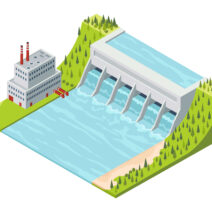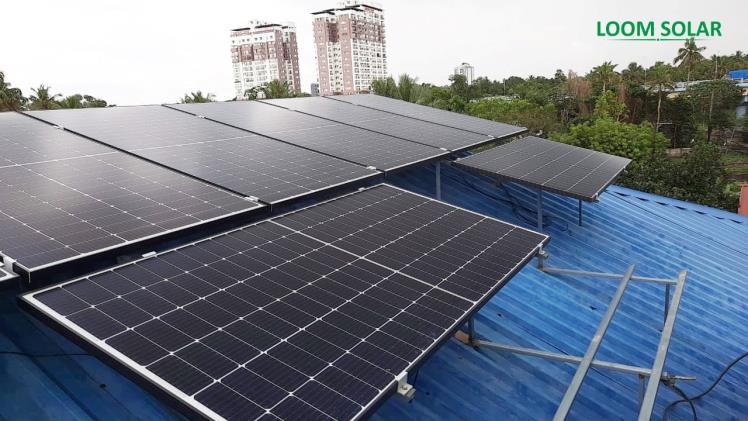Solar panels, often hailed as a cornerstone of renewable energy technology, present an extraordinary opportunity to reshape our approach to energy consumption and environmental conservation. As the world grapples with the mounting challenges posed by climate change, a fresh perspective on energy use is imperative. This article delves into the multifaceted ways in which solar panels help us conserve energy, urging individuals and communities to embrace this sustainable solution for a greener planet.
The sun, an inexhaustible energy source, radiates approximately 173,000 terawatts of energy continuously, which is more than 10,000 times the world’s total energy use. This staggering potential is what positions solar energy as a viable alternative to conventional fossil fuels. Solar panels convert sunlight into electricity through the photovoltaic effect, offering a clean and sustainable energy source that significantly reduces greenhouse gas emissions. The transition to solar power thus promises not just energy conservation, but a reduction in our ecological footprint.
Investing in solar energy represents an intimate symbiosis between technological innovation and environmental stewardship. One of the most compelling advantages of solar panels is their capability to generate power on-site, which diminishes reliance on centralized and often carbon-intensive power plants. This decentralization of energy production culminates in a substantial decrease in energy lost during transmission. Systems that generate power at the point of consumption usher in a new era of efficiency, effectively turning rooftops into miniature power stations.
Moreover, solar panels inherently promote energy independence. As communities adopt this technology, they increasingly free themselves from the whims of fossil fuel markets. This energy autonomy reinforces local economies while also mitigating the vulnerability associated with energy supply disruptions. Communities can harness their solar resources, ensuring a stable and predictable energy supply, which is particularly crucial during unpredictable global energy crises.
The integration of solar technology also fosters an innovative shift toward energy storage solutions. As solar generation peaks during daylight hours, innovative systems, such as batteries, provide the essential balance required for continuous energy usage. These storage units ensure that energy captured during sunlit hours can be utilized even during the night or periods of cloud coverage. This capability not only enhances energy conservation but catalyzes a more resilient energy landscape.
Furthermore, solar panels can be integral in reducing energy consumption through the promotion of energy-efficient technologies. As homes and businesses incorporate solar energy systems, there is a concurrent impetus to adopt energy-saving practices such as LED lighting, smart thermostats, and energy-efficient appliances. These complementary measures not only amplify the benefits of solar installations but also contribute to a holistic approach to energy conservation.
The life cycle of solar panels also warrants attention. While the manufacturing process of solar panels involves resource consumption, significant strides have been made in recent years to enhance the sustainability of production methods. Companies are increasingly employing recyclable materials and adopting circular economy principles, ensuring that end-of-life panels can be repurposed rather than relegated to landfills. This shift reflects a collective commitment to minimizing waste and conserving precious resources.
In addition, the broad-scale deployment of solar panels can lead to employment generation in the burgeoning renewable energy sector. This emerging industry necessitates a workforce skilled in installation, maintenance, and manufacturing, thus creating job opportunities in various communities. Transitioning to a solar-powered future does not merely conserve energy; it provides socioeconomic benefits that ripple through local economies, invigorating communities while addressing climate change.
Environmental restoration is another vital aspect of the solar energy narrative. As solar farms proliferate, they often replace ecologically damaging practices, such as deforestation and fossil fuel extraction. Solar installations can coexist with agriculture, forming synergistic relationships where land is utilized for both crop production and energy generation—a practice known as agrivoltaics. This dual-use approach exemplifies a profound commitment to conserving land while producing clean energy.
Public policy also plays a pivotal role in the advancement of solar energy solutions. Governments worldwide are increasingly recognizing the exigency of transitioning to renewable energy. Incentives such as tax credits, rebates, and feed-in tariffs are powerful tools that bolster the adoption of solar technologies. Policymakers, keenly aware of the benefits that solar energy presents, drive legislative frameworks that facilitate wide-scale implementation, ensuring that solar technologies are accessible to diverse populations.
Education and public awareness campaigns are equally essential for fostering a culture of energy conservation through solar energy. Engaging individuals and organizations in dialogues about the benefits and potentials of solar power encourages proactive participation in the renewable energy revolution. As more people grasp the intricate relationship between energy conservation and solar technology, the momentum for sustainable practices builds, creating a collective imperative for change.
In conclusion, solar panels represent a convergence of technological advancement, economic development, and environmental responsibility. The conservation of energy through solar technology emerges as a multifaceted strategy that counters climate change while reaping numerous societal benefits. By embracing solar solutions, we not only reshape our energy landscape but also take substantial strides toward a sustainable and greener planet. This transition reflects a profound understanding that conserving energy is not merely a choice—it is an obligation we owe to ourselves and future generations. As curiosity grows and knowledge spreads, the adoption of solar panels may become the linchpin in the quest for a harmonious coexistence with our planet.







